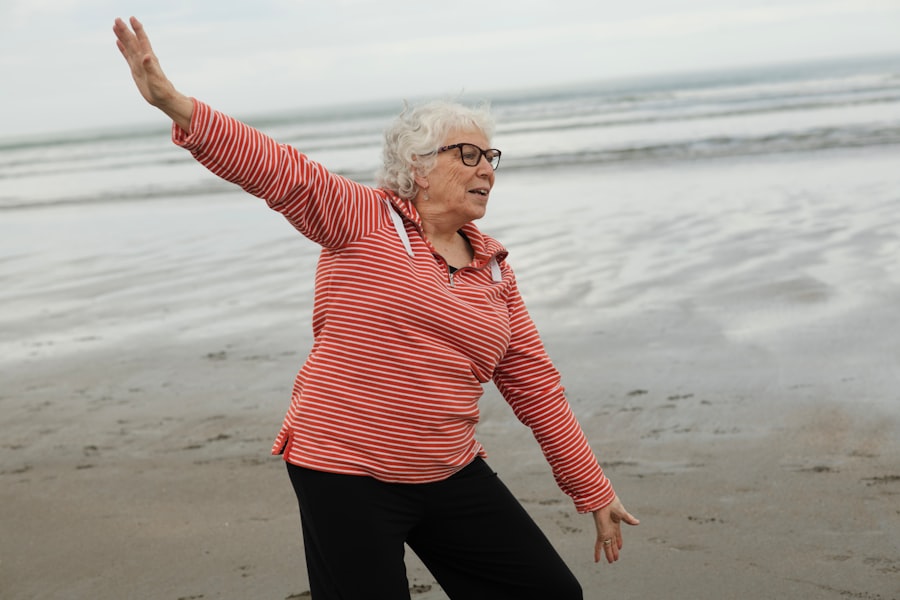As you age, the importance of maintaining your liver health becomes increasingly evident. The liver is a vital organ responsible for numerous functions, including detoxification, metabolism, and the production of essential proteins. For seniors, a healthy liver is crucial not only for overall well-being but also for the effective management of other health conditions.
As you navigate the complexities of aging, understanding how to care for your liver can significantly impact your quality of life. The liver’s ability to regenerate and adapt diminishes with age, making it more susceptible to damage from various factors such as medications, alcohol, and poor dietary choices. This decline in liver function can lead to a host of complications, including fatty liver disease, cirrhosis, and even liver cancer.
By prioritizing liver health, you can enhance your body’s resilience against these conditions and promote longevity. Recognizing the signs of liver distress and taking proactive measures can empower you to maintain a healthier lifestyle as you age.
Key Takeaways
- Liver health is crucial for seniors as it affects overall well-being and quality of life.
- Common liver conditions in seniors include fatty liver disease, hepatitis, and cirrhosis.
- A healthy diet for liver function includes plenty of fruits, vegetables, whole grains, and lean proteins.
- Regular exercise can support liver health by reducing fat accumulation and improving overall metabolism.
- Limiting alcohol consumption is essential for senior liver health to prevent further damage to the liver.
Common Liver Conditions in Seniors
As you grow older, certain liver conditions become more prevalent, and being aware of them is essential for your health. One common issue is non-alcoholic fatty liver disease (NAFLD), which occurs when excess fat accumulates in the liver without significant alcohol consumption. This condition can lead to inflammation and scarring, ultimately affecting liver function.
If you notice symptoms such as fatigue, abdominal discomfort, or unexplained weight loss, it may be time to consult a healthcare professional. Another significant concern is alcoholic liver disease, which can develop even in moderate drinkers as they age. The liver’s ability to process alcohol diminishes over time, increasing the risk of damage.
Symptoms may include jaundice, swelling in the abdomen, and confusion. Additionally, chronic hepatitis C is a viral infection that can lead to severe liver damage if left untreated. Understanding these conditions can help you recognize potential warning signs and seek timely medical intervention.
Maintaining a Healthy Diet for Liver Function

Your diet plays a pivotal role in supporting liver health as you age. Consuming a balanced diet rich in fruits, vegetables, whole grains, and lean proteins can provide the essential nutrients your liver needs to function optimally. Foods high in antioxidants, such as berries and leafy greens, help combat oxidative stress and inflammation, which are detrimental to liver health.
Incorporating healthy fats from sources like avocados and nuts can also support liver function by promoting cellular repair. It’s equally important to limit processed foods high in sugar and unhealthy fats. These foods can contribute to fat accumulation in the liver and increase the risk of developing conditions like NAFLD.
As you plan your meals, consider focusing on portion control and mindful eating practices. By being conscious of what you consume, you can make informed choices that benefit your liver and overall health.
The Role of Exercise in Supporting Liver Health
| Exercise Type | Frequency | Duration | Intensity |
|---|---|---|---|
| Aerobic | 3-5 times per week | 30-60 minutes | Moderate to vigorous |
| Strength Training | 2-3 times per week | 20-30 minutes | Moderate to high |
| Flexibility | 2-3 times per week | 10-15 minutes | Mild to moderate |
Incorporating regular physical activity into your routine is another key component of maintaining liver health as you age. Exercise helps improve blood circulation and promotes the metabolism of fats and sugars, reducing the risk of fatty liver disease. Engaging in activities such as walking, swimming, or yoga not only supports your liver but also enhances your overall physical and mental well-being.
Moreover, exercise can aid in weight management, which is crucial for preventing liver-related issues. As you age, maintaining a healthy weight becomes increasingly important for reducing the strain on your liver. Aim for at least 150 minutes of moderate-intensity aerobic activity each week, along with strength training exercises twice a week.
By making exercise a priority, you can significantly contribute to your liver’s health and longevity.
Limiting Alcohol Consumption for Senior Liver Health
Alcohol consumption is a significant factor affecting liver health, especially in seniors. As your body ages, its ability to metabolize alcohol decreases, leading to an increased risk of liver damage even with moderate drinking. To protect your liver, it’s essential to be mindful of your alcohol intake.
The Centers for Disease Control and Prevention (CDC) recommends that older adults limit their alcohol consumption to no more than one drink per day. If you find it challenging to reduce your alcohol intake or have concerns about its impact on your health, consider seeking support from healthcare professionals or support groups. They can provide guidance tailored to your specific needs and help you develop healthier coping mechanisms.
By prioritizing moderation or abstaining from alcohol altogether, you can significantly enhance your liver’s resilience and overall health.
Managing Medications and Supplements for Liver Function

As you age, managing medications becomes increasingly complex due to potential interactions and side effects that can affect liver function. It’s crucial to communicate openly with your healthcare provider about all medications and supplements you are taking. Some over-the-counter medications, such as acetaminophen, can be particularly harmful to the liver when taken in excess or combined with other substances.
Additionally, while some supplements may claim to support liver health, not all are safe or effective for seniors. Always consult with your healthcare provider before starting any new supplement regimen. They can help you navigate the options available and ensure that any supplements you take do not interfere with your existing medications or exacerbate any underlying health conditions.
Importance of Regular Liver Function Tests for Seniors
Regular monitoring of liver function is essential for seniors to detect potential issues early on.
These tests can help identify conditions such as hepatitis or fatty liver disease before they progress into more serious complications.
If you’re over 50 or have risk factors such as obesity or a history of alcohol use, it’s advisable to discuss the frequency of LFTs with your healthcare provider. Early detection allows for timely intervention and management strategies that can significantly improve outcomes. By prioritizing regular check-ups and being proactive about your health, you empower yourself to take control of your liver health.
Incorporating Liver-Boosting Foods and Herbs into Senior Diets
In addition to maintaining a balanced diet, incorporating specific foods and herbs known for their liver-boosting properties can further enhance your liver health. Foods like garlic, turmeric, and beets are rich in compounds that support detoxification processes within the liver. Garlic contains allicin, which has been shown to reduce inflammation and promote healthy liver function.
Herbs such as milk thistle have long been used in traditional medicine for their protective effects on the liver. Milk thistle contains silymarin, an antioxidant that may help regenerate damaged liver cells and improve overall function. Consider adding these foods and herbs into your meals or discussing their use with a healthcare professional to ensure they align with your dietary needs.
Managing Chronic Conditions for Optimal Liver Function
Chronic conditions such as diabetes, hypertension, and high cholesterol can significantly impact liver health if not managed properly. As you age, it’s crucial to work closely with your healthcare provider to monitor these conditions effectively. Maintaining stable blood sugar levels through diet and exercise can reduce the risk of developing fatty liver disease.
Additionally, managing cholesterol levels through dietary changes and medication when necessary can help protect your liver from further damage. Regular check-ups allow for adjustments in treatment plans as needed, ensuring that all aspects of your health are considered holistically. By taking an active role in managing chronic conditions, you contribute positively to your liver’s well-being.
Seeking Support for Liver Health in Seniors
Navigating the complexities of maintaining liver health can be overwhelming at times; however, seeking support can make a significant difference in your journey toward better health. Consider joining support groups or engaging with community resources focused on senior health issues. These platforms provide valuable information and connect you with others who share similar experiences.
Additionally, don’t hesitate to reach out to healthcare professionals who specialize in geriatric care or hepatology. They can offer personalized advice tailored to your unique situation and help you develop a comprehensive plan for maintaining optimal liver health. Remember that you’re not alone in this journey; seeking support is a proactive step toward enhancing your overall well-being.
Prioritizing Liver Health for Overall Senior Well-being
In conclusion, prioritizing liver health is essential for enhancing your overall well-being as you age.
Maintaining a balanced diet rich in nutrients, engaging in regular exercise, limiting alcohol consumption, managing medications carefully, and seeking regular check-ups are all critical components of supporting your liver.
As you navigate the challenges of aging, remember that small changes can lead to significant improvements in your health outcomes. By incorporating liver-boosting foods into your diet and managing chronic conditions effectively, you set yourself up for success in maintaining optimal liver function. Ultimately, prioritizing your liver health will not only enhance your quality of life but also contribute positively to your overall well-being as a senior.
For seniors looking to maintain optimal liver function, it’s essential to incorporate healthy lifestyle choices such as a balanced diet, regular exercise, and avoiding excessive alcohol consumption. An article that provides valuable insights into senior health tips, including those for liver function, can be found on the Explore Senior Health website. You can read more about these tips by visiting this related article. This resource offers comprehensive advice tailored to the needs of seniors, helping them to support their liver health effectively.
WATCH THIS! 🧃The 60-Year Liver Lie: Why Your “Healthy” Juice Is Destroying Your Liver
FAQs
What is the importance of liver function for senior health?
The liver plays a crucial role in senior health as it helps to process nutrients, filter toxins from the blood, and regulate metabolism. Maintaining good liver function is essential for overall health and well-being in seniors.
What are some tips for seniors to maintain healthy liver function?
Some tips for seniors to maintain healthy liver function include maintaining a healthy weight, eating a balanced diet, limiting alcohol consumption, staying hydrated, and avoiding exposure to toxins and chemicals.
How does diet impact liver function in seniors?
A healthy diet can support liver function in seniors by providing essential nutrients and antioxidants. Foods that are beneficial for liver health include fruits, vegetables, whole grains, lean proteins, and healthy fats.
What role does hydration play in supporting liver function for seniors?
Staying hydrated is important for liver function as it helps the liver to flush out toxins and waste products. Seniors should aim to drink an adequate amount of water each day to support their liver health.
Why is it important for seniors to limit alcohol consumption for liver health?
Excessive alcohol consumption can lead to liver damage and impair liver function. Seniors should limit their alcohol intake to protect their liver health and overall well-being.
How can seniors avoid exposure to toxins and chemicals that may harm liver function?
Seniors can avoid exposure to toxins and chemicals by using natural cleaning products, being cautious with medications and supplements, and minimizing exposure to environmental pollutants. Taking these precautions can help protect the liver from harm.
